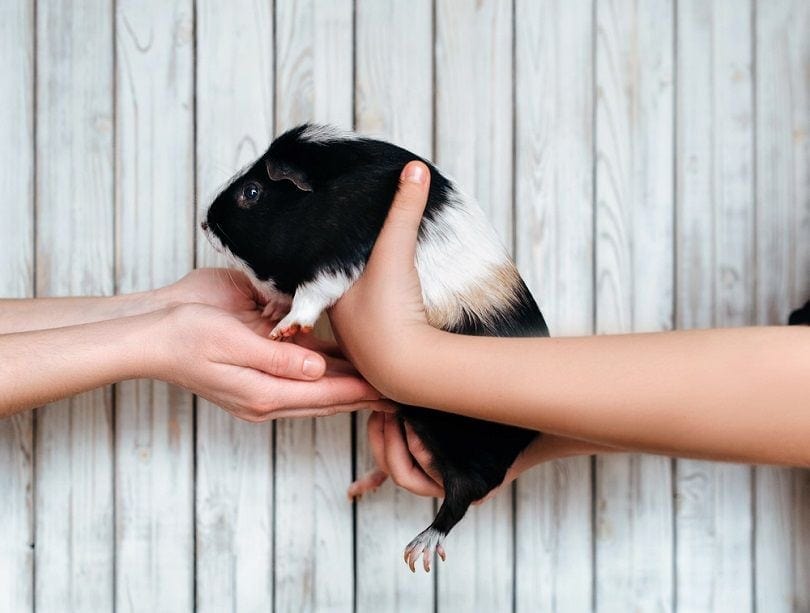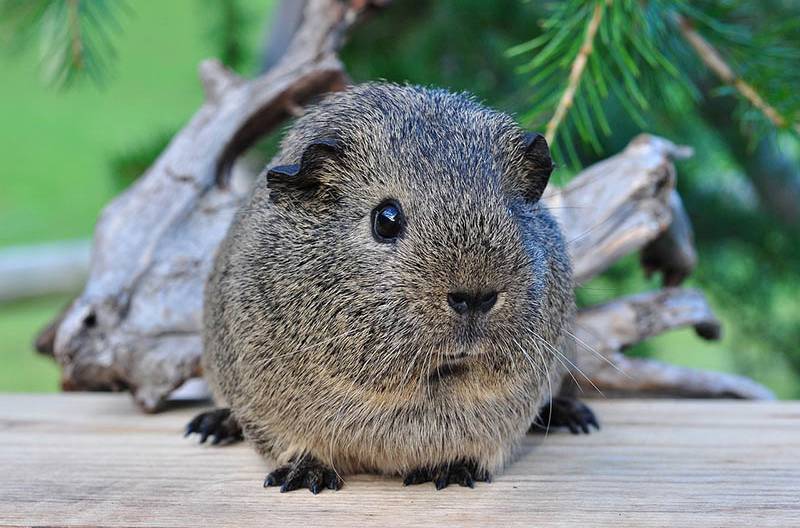Can Guinea Pigs Eat Cantaloupe? Vet-Reviewed Facts & FAQ
Updated on

Since they’re adorable and easy to care for, guinea pigs are popular pocket pets suitable for beginner exotic animal owners. Properly feeding a guinea pig is vital to keeping them healthy, including knowing which foods are safe and nutritious. For example, guinea pigs can eat cantaloupe, but only in limited amounts because it is not the healthiest food for them.
Keep reading to learn what’s good and bad about feeding cantaloupe to your guinea pig. We’ll also cover the basics of the guinea pig diet and let you know what foods are off-limits to these animals.
Cantaloupe for Guinea Pigs: The Good, the Bad, and the Bite-sized
The good news is that cantaloupe is safe for guinea pigs to eat and offers some nutritional benefits. Unlike many animals, guinea pigs can’t produce Vitamin C, so they need to get it from their diet or supplements. Feeding vegetables and fruit high in Vitamin C is one way to ensure guinea pigs receive this vital nutrient.
- The Good: Cantaloupe contains high amounts of Vitamin C, among other nutrients essential for healthy cavies.
- The Bad: Fruit is high in sugar, which can upset a guinea pig’s digestion and cause obesity.
Fruit, including cantaloupe, should only be offered as a treat and not make up a large part of a guinea pig’s daily diet .Cantaloupe and other fruits should be offered a couple of times a week, if at all.
If you feed your guinea pig cantaloupe, serve the fruit’s flesh only, not the seeds or rind. Cut the cantaloupe into bite-sized pieces to prevent choking, and remove any uneaten cantaloupe at the end of the day to keep it from spoiling.
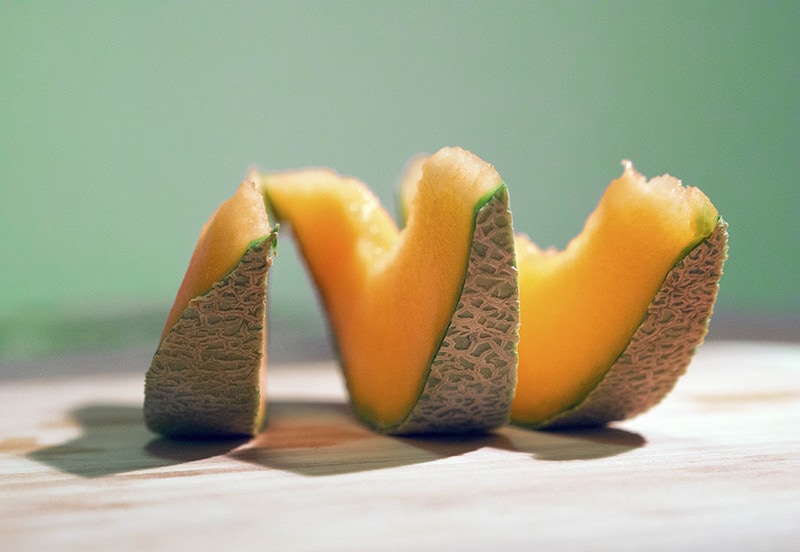
Guinea Pig Diet: The Basics
We know that fruit should play a minor role in your guinea pig’s diet, so what should these animals eat every day? About 75% of a guinea pig’s daily diet should be good quality hay, such as Timothy, meadow, or oat hay. Guinea pigs need constant access to hay to keep their teeth and digestion healthy.
Guinea pigs should eat ½-1 cup of vegetables daily as part of a balanced diet. Good options include leaf lettuce, carrots, tomatoes, parsley, and dandelion greens. Avoid or limit feeding vegetables like cabbage and broccoli, which may cause gas, and dark, leafy greens like spinach which may contribute to the formation of bladder stones.
About 1-2 tablespoons of pellets should complete your pet’s daily food offerings. Look for pellets made specifically for guinea pigs that are fortified with Vitamin C. Avoid pellet diets that include seeds, nuts, or dried fruit. Besides cantaloupe, other fruits to serve your guinea pig as treats include apples and berries.
Guinea pigs should also have unlimited access to fresh water and may need a Vitamin C supplement. Ask your veterinarian for guidance before starting a vitamin supplement.
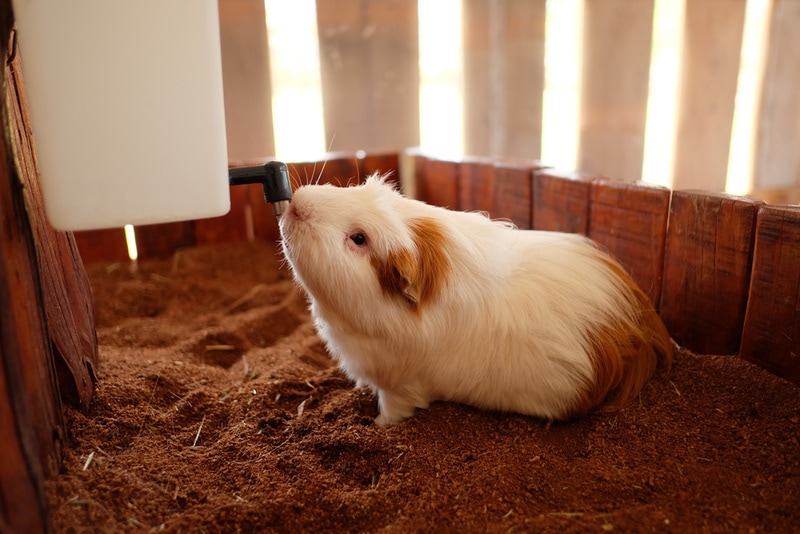
Signs of Vitamin C deficiency in guinea pigs include:
- painful or swollen joints
- lethargy or reluctance to move
- flakey, rough coat
- slow wound healing
- gut stasis and bloat
- bloody urine or diarrhea
What Foods Should Guinea Pigs Not Eat?
We’ve already mentioned foods, including cantaloupe, that you should only feed occasionally, but which items should guinea pigs never eat?
As herbivores, guinea pigs should never be offered meat or animal products.
Here are some other foods to avoid:
- Pellet diets formulated for other species (like rabbits)
- Bread, crackers, cereal, and other high-starch foods
- Peas or corn
- Spoiled food
- Unwashed fruits and vegetables
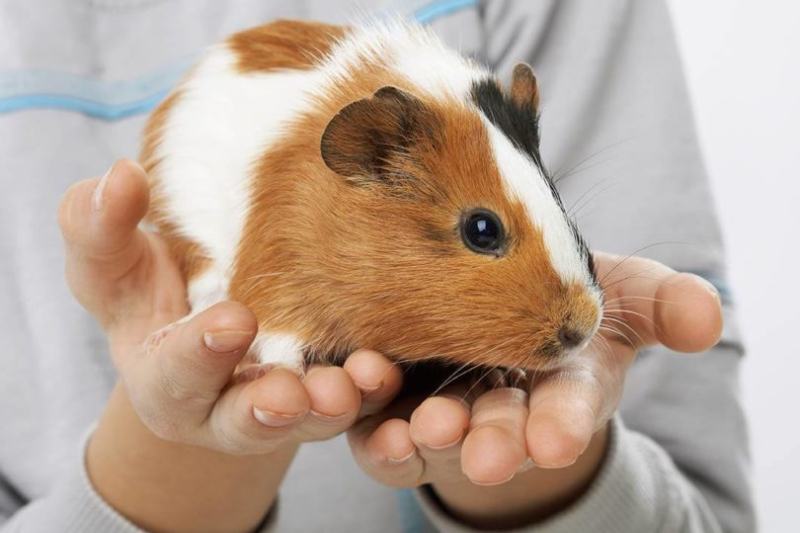
Conclusion
Cantaloupe is safe for guinea pigs to eat as an occasional treat and provides a necessary nutrient, Vitamin C. However, even safe foods can cause diarrhea or gas, so introduce new fruits and vegetables one at a time to see how your guinea pig reacts. If you are ever uncertain if a food is safe for your guinea pig, consult your veterinarian. They can also help you ensure your guinea pig’s diet is balanced and keep your pet as healthy as possible.
See also:
- Can Guinea Pigs Eat Kiwi? Vet-Reviewed Nutrition Facts & FAQ
- Can Guinea Pigs Eat Coconut? Vet-Reviewed Nutrition Facts
Featured Image Credit: PublicDomainImages, Pixabay


